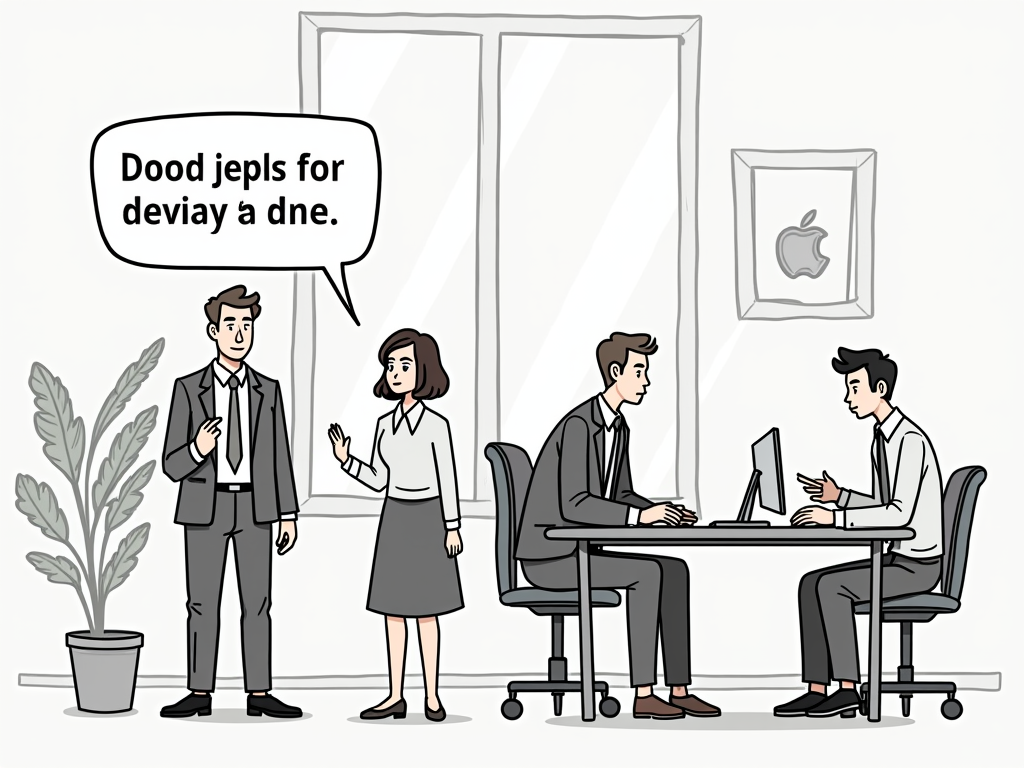
What Happens If My UAE Visa Gets Rejected?
Table of Contents
- Introduction
- Understanding UAE Visa Rejection
- Common Reasons for UAE Visa Rejection
- Immediate Consequences of Visa Rejection
- Steps to Take After a Visa Rejection
- Reapplication Process
- Alternatives to Consider
- Prevention Strategies
- Legal Implications
- Impact on Future Travel Plans
- Conclusion
- FAQs
Introduction
Applying for a UAE visa can be an exciting yet nerve-wracking experience, especially if you’re planning a trip to this Middle Eastern gem for business, leisure, or potential relocation. However, the process doesn’t always go smoothly, and sometimes applicants face the disappointing outcome of a visa rejection. If you find yourself in this situation, you might be wondering, “What happens if my UAE visa gets rejected?” This comprehensive guide will walk you through the implications, reasons, and steps to take following a UAE visa rejection, ensuring you’re well-informed and prepared for any scenario.
Understanding UAE Visa Rejection
A UAE visa rejection occurs when the immigration authorities decide not to grant you permission to enter the country. This decision is based on various factors and is made after careful consideration of your application and supporting documents. It’s important to note that a visa rejection is not necessarily a permanent ban from entering the UAE; rather, it’s a refusal for that particular application.
The UAE, known for its stringent immigration policies, maintains high standards for visa approvals to ensure the safety and security of both its citizens and visitors. While this can sometimes lead to rejections, understanding the process can help you navigate the situation more effectively.
Common Reasons for UAE Visa Rejection
Before delving into the consequences and next steps, it’s crucial to understand why your UAE visa might have been rejected. Identifying the reason can help you address the issue in future applications. Here are some common reasons for UAE visa rejections:
Incomplete or Inaccurate Documentation
One of the most frequent causes of visa rejections is submitting incomplete or inaccurate documentation. This can include:
- Missing pages in your passport
- Incorrect personal information on the application form
- Outdated or expired supporting documents
- Lack of required certificates or attestations
Security Concerns
The UAE takes security very seriously. Your visa may be rejected if:
- You have a criminal record
- There are concerns about your background or associations
- Your name appears on any international watchlists
Financial Instability
The UAE wants to ensure that visitors can support themselves during their stay. Reasons related to financial instability include:
- Insufficient funds in your bank account
- Lack of a stable income source
- Inability to prove financial solvency
Previous Visa Violations
If you’ve previously visited the UAE and violated visa regulations, such as overstaying your visa or working illegally, this could lead to a rejection of future applications.
Health-Related Issues
Certain health conditions may result in a visa rejection, particularly if they are considered a public health risk or if you’re unable to provide the required medical certificates.
Immediate Consequences of Visa Rejection
When your UAE visa application is rejected, several immediate consequences come into play:
Notification of Rejection
You will receive an official notification informing you of the rejection. This usually comes via email or through the visa application center where you submitted your application.
Travel Plans Disruption
If you had already made travel arrangements, you’ll need to cancel or postpone them. This can include flights, hotel bookings, and any planned activities in the UAE.
Financial Loss
Unfortunately, visa application fees are typically non-refundable. Additionally, you may incur losses from cancelled travel arrangements, especially if they were non-refundable or had cancellation fees.
Emotional Impact
A visa rejection can be emotionally distressing, particularly if you had important reasons for traveling to the UAE, such as business meetings, family events, or educational opportunities.
Steps to Take After a Visa Rejection
If your UAE visa application has been rejected, don’t lose hope. Here are the steps you should take:
Understand the Reason
Carefully read the rejection notice to understand the specific reason for the denial. If the reason isn’t clear, contact the UAE embassy or consulate for clarification.
Gather Additional Information
Based on the reason for rejection, collect any additional information or documentation that might support your case for a future application.
Seek Professional Advice
Consider consulting with a immigration lawyer or a reputable visa consultant who specializes in UAE visas. They can provide valuable insights and guidance on how to proceed.
Address the Issues
Take steps to address the reasons for rejection. This might involve obtaining missing documents, improving your financial situation, or resolving any legal issues.
Consider Alternative Options
Explore other visa categories or alternative destinations that might be more suitable for your situation.
Reapplication Process
If you decide to reapply for a UAE visa after a rejection, here’s what you need to know:
Waiting Period
There’s typically no mandatory waiting period before you can reapply for a UAE visa. However, it’s advisable to wait at least a few weeks to address the issues that led to the initial rejection.
Improved Application
When reapplying, ensure that your new application addresses all the concerns raised in the previous rejection. This means providing additional documentation, clarifying any misunderstandings, and strengthening your case overall.
Different Visa Type
Consider applying for a different type of visa that might be more suitable for your situation. For example, if your tourist visa was rejected, you might have better luck with a business visa if you have legitimate business interests in the UAE.
Professional Assistance
For your reapplication, it might be beneficial to seek professional help from a visa consultant or immigration lawyer to increase your chances of approval.
Alternatives to Consider
If reapplying for a UAE visa doesn’t seem like the best option, consider these alternatives:
Other UAE Entry Points
If your visa for one emirate was rejected, you might consider applying for entry through another emirate. Each emirate has its own immigration policies, and you might have better luck with a different entry point.
Neighboring Countries
Consider visiting neighboring countries like Oman, Bahrain, or Qatar, which offer similar cultural experiences and business opportunities.
Virtual Options
If your purpose for visiting the UAE was business-related, explore virtual meeting options to connect with your UAE-based contacts without physically entering the country.
Prevention Strategies
To avoid future visa rejections, consider implementing these prevention strategies:
Thorough Preparation
Ensure all your documents are complete, accurate, and up-to-date before submitting your application. Double-check everything to avoid simple errors.
Financial Stability
Maintain a healthy bank balance and be prepared to show proof of funds that can support your stay in the UAE.
Clean Record
Maintain a clean travel and criminal record. Avoid overstaying visas or engaging in any illegal activities.
Health Certifications
Keep your health certifications current, especially if you’re applying for a long-term visa or planning to work in the UAE.
Genuine Purpose
Ensure that your reason for visiting the UAE is genuine and can be substantiated with proper documentation.
Legal Implications
A UAE visa rejection doesn’t typically have direct legal implications, but there are some considerations:
No Legal Record
A visa rejection is not a legal offense and doesn’t create a criminal record. It’s simply an administrative decision.
Future Applications
While a rejection doesn’t legally bar you from future applications, it may be noted in your immigration record and could influence future decisions.
Appeal Process
There’s no formal appeal process for UAE visa rejections. However, you can reapply with improved documentation and circumstances.
Impact on Future Travel Plans
A UAE visa rejection can have implications for your future travel plans:
Other Countries’ Visa Applications
Some countries ask about previous visa rejections in their application forms. While a UAE rejection doesn’t automatically disqualify you from other countries, you may need to explain the circumstances.
Travel History
A visa rejection becomes part of your travel history. While it’s not necessarily negative, it’s something to be aware of when planning future international trips.
Multiple Rejections
Multiple visa rejections, especially from the same country, can make it more challenging to obtain visas in the future. It’s crucial to address the underlying issues before reapplying.
Conclusion
Experiencing a UAE visa rejection can be disheartening, but it’s not the end of your travel aspirations. By understanding the reasons for rejection, taking appropriate steps to address them, and considering alternative options, you can navigate this setback effectively. Remember that visa policies and individual circumstances can change, so a rejection today doesn’t necessarily mean you’ll never be able to visit the UAE.
The key is to approach the situation calmly and methodically. Gather all necessary information, seek professional advice if needed, and make informed decisions about your next steps. Whether you choose to reapply, explore alternatives, or postpone your UAE travel plans, use this experience as an opportunity to strengthen your future visa applications.
Ultimately, while a visa rejection can be a temporary obstacle, it doesn’t define your entire travel journey. Stay positive, learn from the experience, and continue pursuing your travel goals with determination and careful planning.
FAQs
1. Can I get a refund for my visa application fee if my UAE visa is rejected?
Unfortunately, visa application fees are typically non-refundable, regardless of the outcome of your application. These fees cover the processing costs and are not dependent on whether the visa is approved or rejected.
2. How long do I have to wait before reapplying for a UAE visa after a rejection?
There is no mandatory waiting period for reapplying after a UAE visa rejection. However, it’s advisable to wait at least a few weeks to address the issues that led to the initial rejection before submitting a new application.
3. Will a UAE visa rejection affect my ability to get visas for other countries?
A UAE visa rejection doesn’t automatically affect your ability to get visas for other countries. However, some countries may ask about previous visa rejections in their application forms. It’s important to be honest about your travel history and explain the circumstances if asked.
4. Can I appeal a UAE visa rejection decision?
The UAE doesn’t have a formal appeal process for visa rejections. Instead of appealing, you have the option to submit a new application, addressing the reasons for the initial rejection and providing additional supporting documents if necessary.
5. Is it possible to know the exact reason for my UAE visa rejection?
While the rejection notice usually provides a general reason for the denial, it may not always give specific details. If you need more information, you can try contacting the UAE embassy or consulate where you applied. However, they may not always be able to provide additional details due to privacy and security policies.

Article reviewed by Emre Demir, Cross-Border Investment Broker | Bridging Europe & Middle East, on March 27, 2025






